Shaping the future through science
This accolade will help Karoro’s research shine brighter
Ugandan born Unisa Physics PhD student, Angela Karoro, from the UNESCO-Unisa Chair in Nanoscience and Nanotechnology, did her country, and Unisa, proud when she recently received a L’Oréal-UNESCO for Women in Science Fellowship.
For Karoro, this is an unexpected honour. “I feel sincere gratitude to the Almighty God for this prestigious award and to the L’Oréal-UNESCO for Women in Science jury for having selected me. I am so humbled”.
She learnt about this fellowship from postdoctoral fellow and former Laureate, Dr Aline Simo, and Professor Malik Maaza, incumbent of the UNESCO-Unisa Africa Chair in Nanoscience and Nanotechnology, who are very enthusiastic about her participation in local and international workshops, conferences and other platforms just like this one.
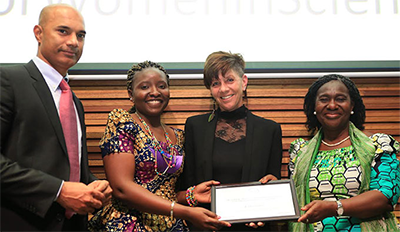
The L’Oréal-UNESCO For Women in Science Fellowships programme recognises the achievements and contributions of exceptional females across the globe, by awarding promising scientists with Fellowships to help further their research. Pictured at a glittering ceremony in Johannesburg: Sandeep Rai, (L’Oréal SA Country Manager), Angela Karoro (PhD Physics student at Unisa), Prof Jill Farrant, (professor of molecular and cell biology at the University of Cape Town and President of the Jury), and Dr Peggy Oti-Boateng (UNESCO Regional Science Advisor).
Her research project is all about solar selective properties of the ‘Laser treated tubular cobalt-alumina nanocomposite’. It focuses on the design of nano-materials with the ability to absorb as much solar radiation as possible and avoid losing this to surroundings. “This kind of solar absorber (cobalt nanocylinders in porous aluminium oxide) can be used in solar hot systems and concentrated solar power. The laser treatment enhances the optical performance,” Karoro explained.
Karoro’s research path began with an MSc Physics research programme at Makerere and Busitema Universities in Uganda where she was working with undergraduate Physics programmes. She has been actively involved in renewable energy projects and this brought Karoro in contact with Professor Ernst Van Groningen, Director of the International Science Programme at Uppsala University in Sweden and her supervisor Maaza. “Their skilled guidance and assistance in my research career has been invaluable and I find them truly great mentors,” she said.
For the past 18 years, the L’Oréal-UNESCO for Women in Science programme has encouraged, promoted and honoured women scientists all over the world. More than 2,500 researchers from 112 countries have been distinguished for their extraordinary discoveries and supported at key moments in their careers.
Impacting the lives of people around the planet, their discoveries are offering new solutions and answering vital questions. Their ground breaking innovation is advancing entire fields of research and even opening new ones. The fellow’s work and research is contributing to curing diseases, increasing food supplies, enabling sustainable development, helping ensure the survival of our planet to better understand our universe, adding to our knowledge of the very foundations of life.
*By Kirosha Naicker
Publish date: 2016-10-07 00:00:00.0


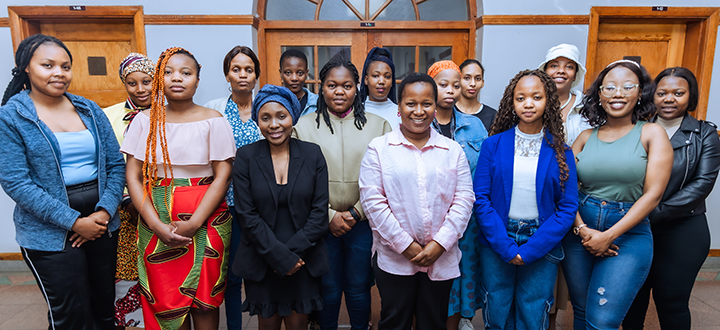 Second cohort of the Bosadi Artisan Creative Media Business Start-up Programme launched
Second cohort of the Bosadi Artisan Creative Media Business Start-up Programme launched
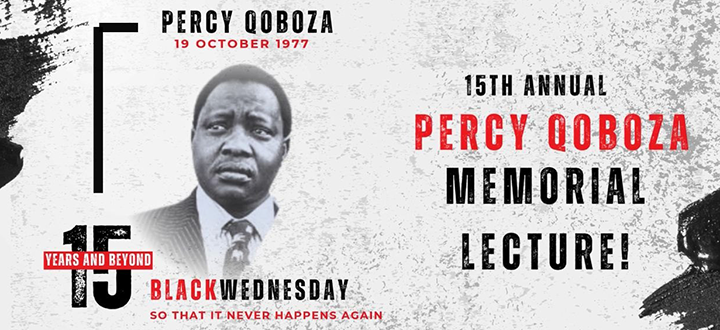 Percy Qoboza remains a luminary voice for truth and justice in the digital era
Percy Qoboza remains a luminary voice for truth and justice in the digital era
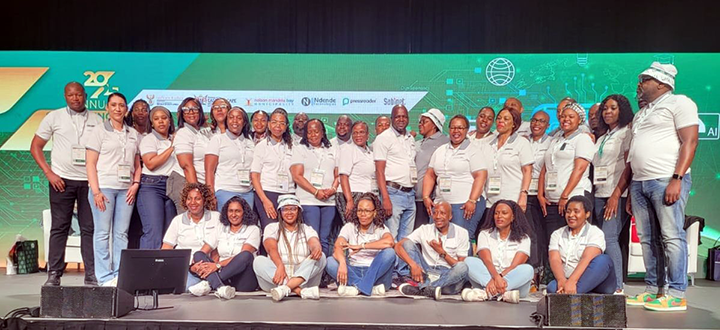 Unisa celebrates excellence at LIASA Conference
Unisa celebrates excellence at LIASA Conference
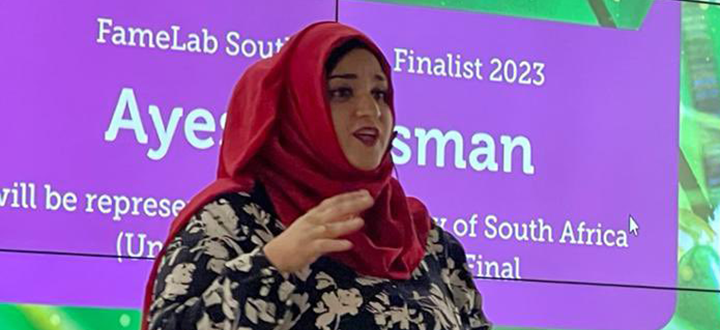 From personal struggles to national reach
From personal struggles to national reach
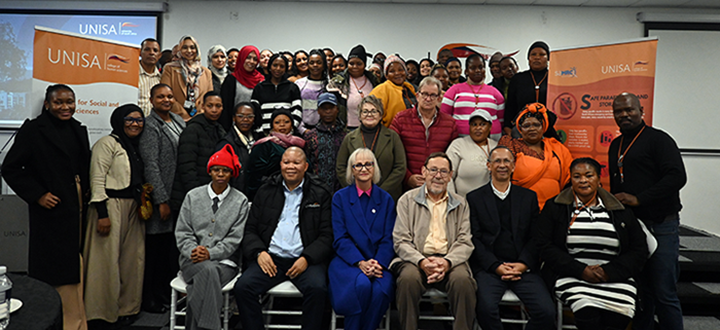 Why South Africans need safer energy alternatives
Why South Africans need safer energy alternatives